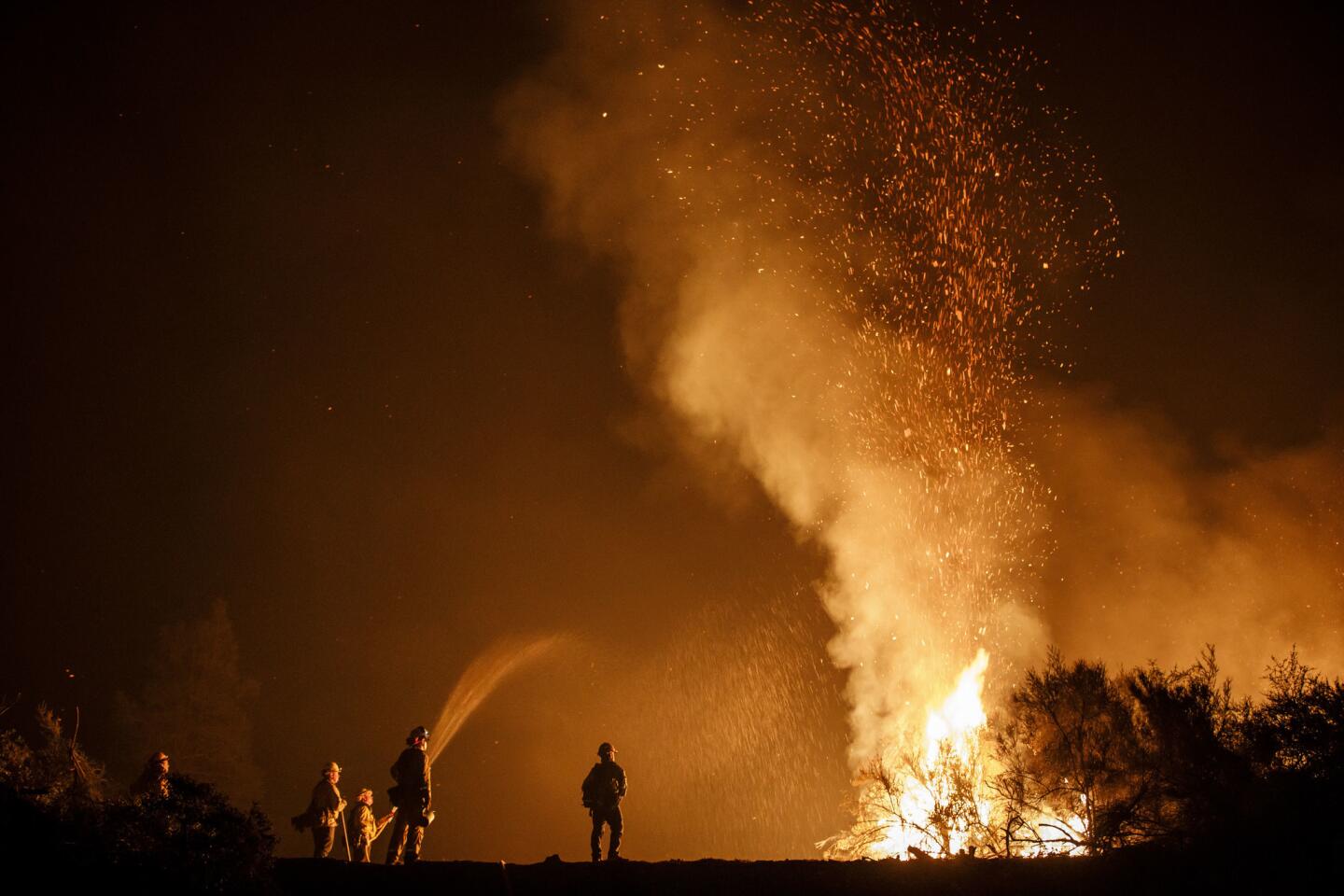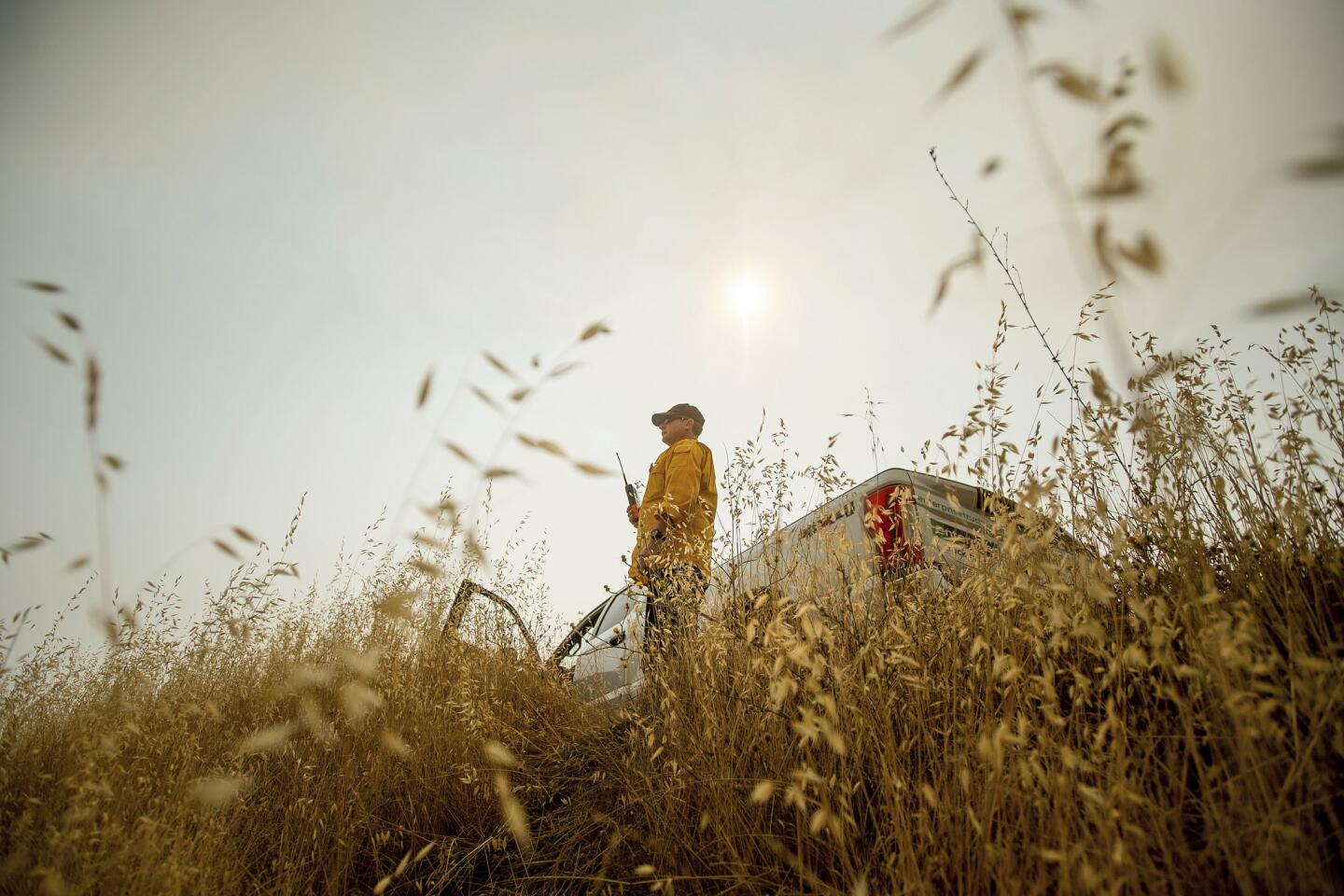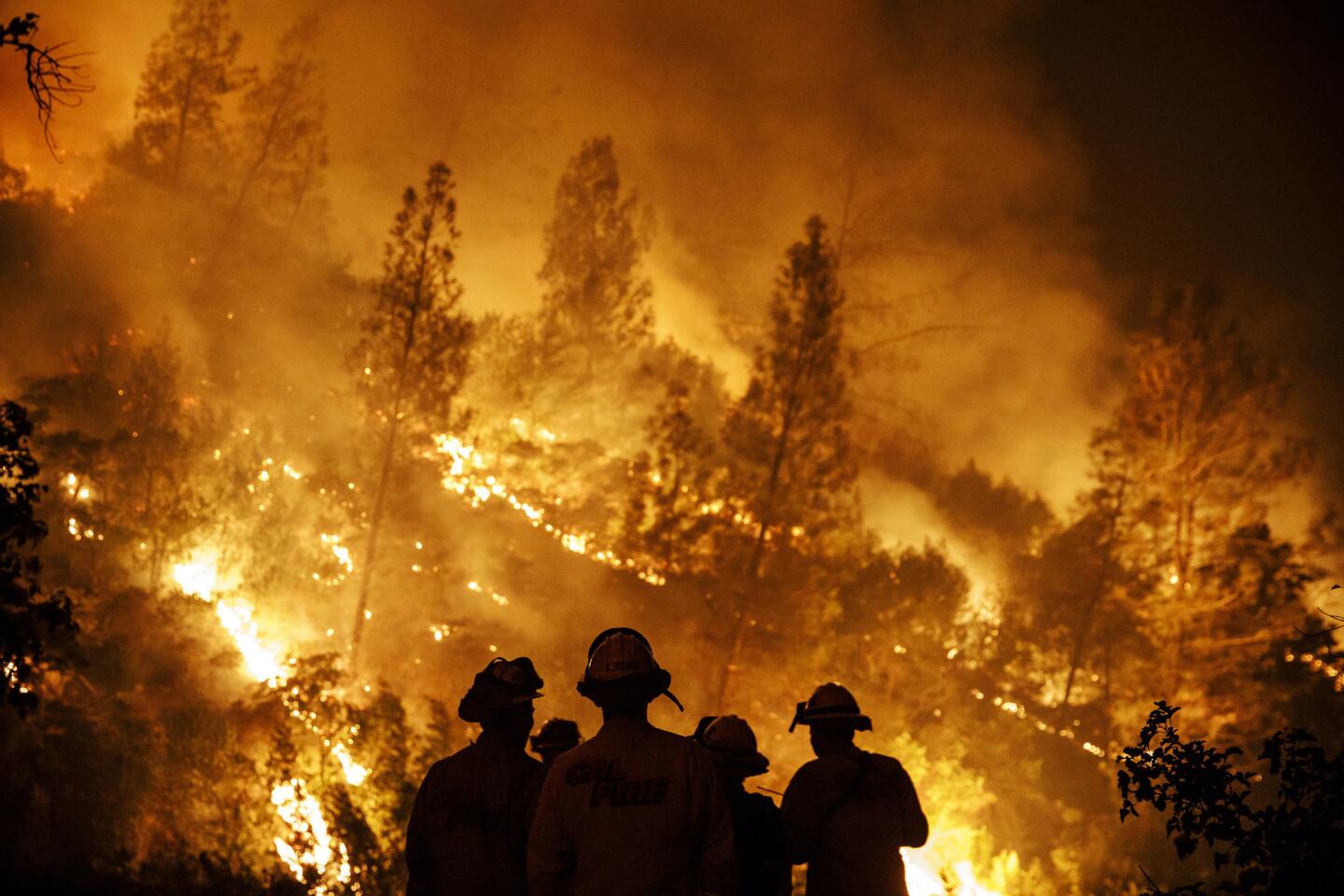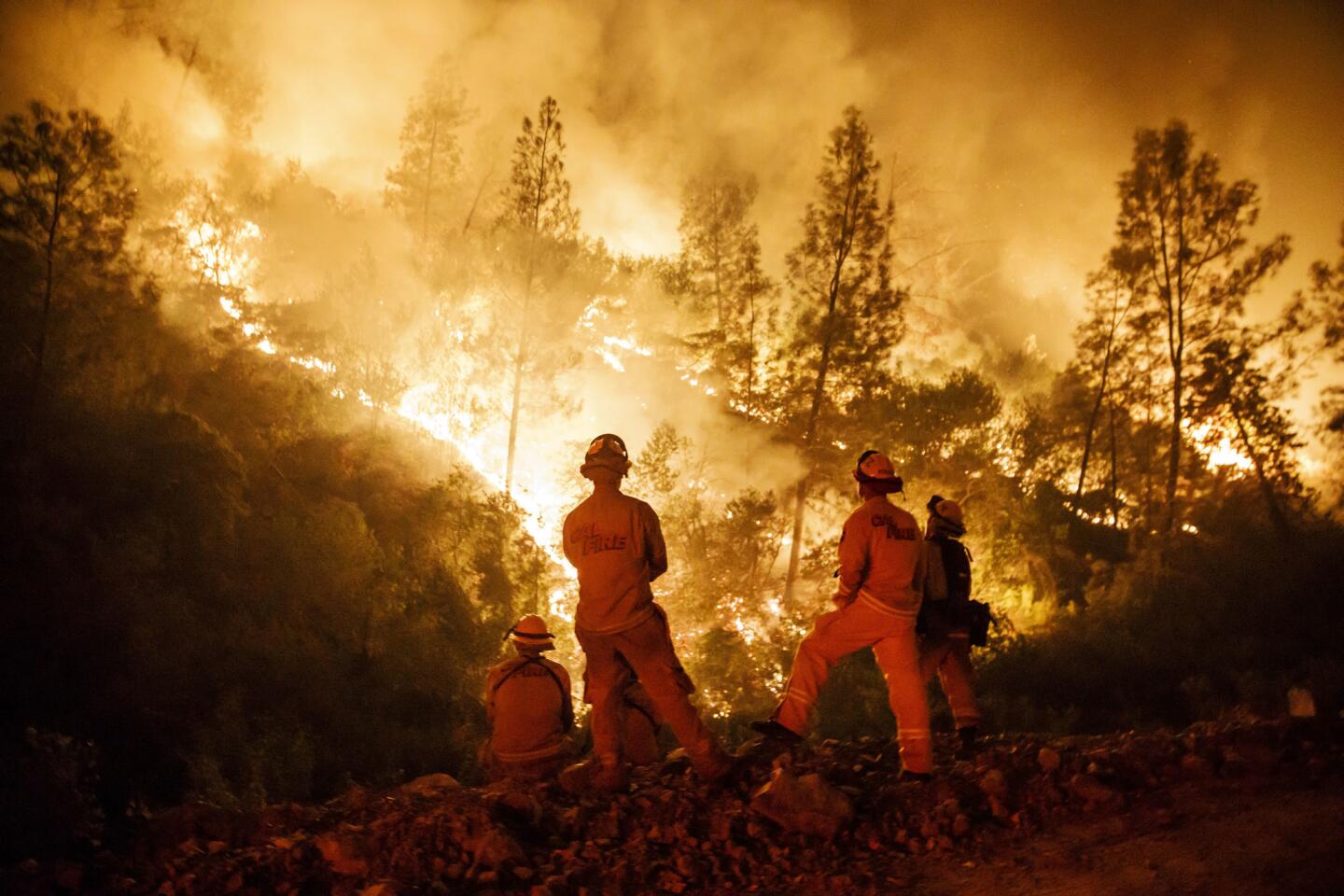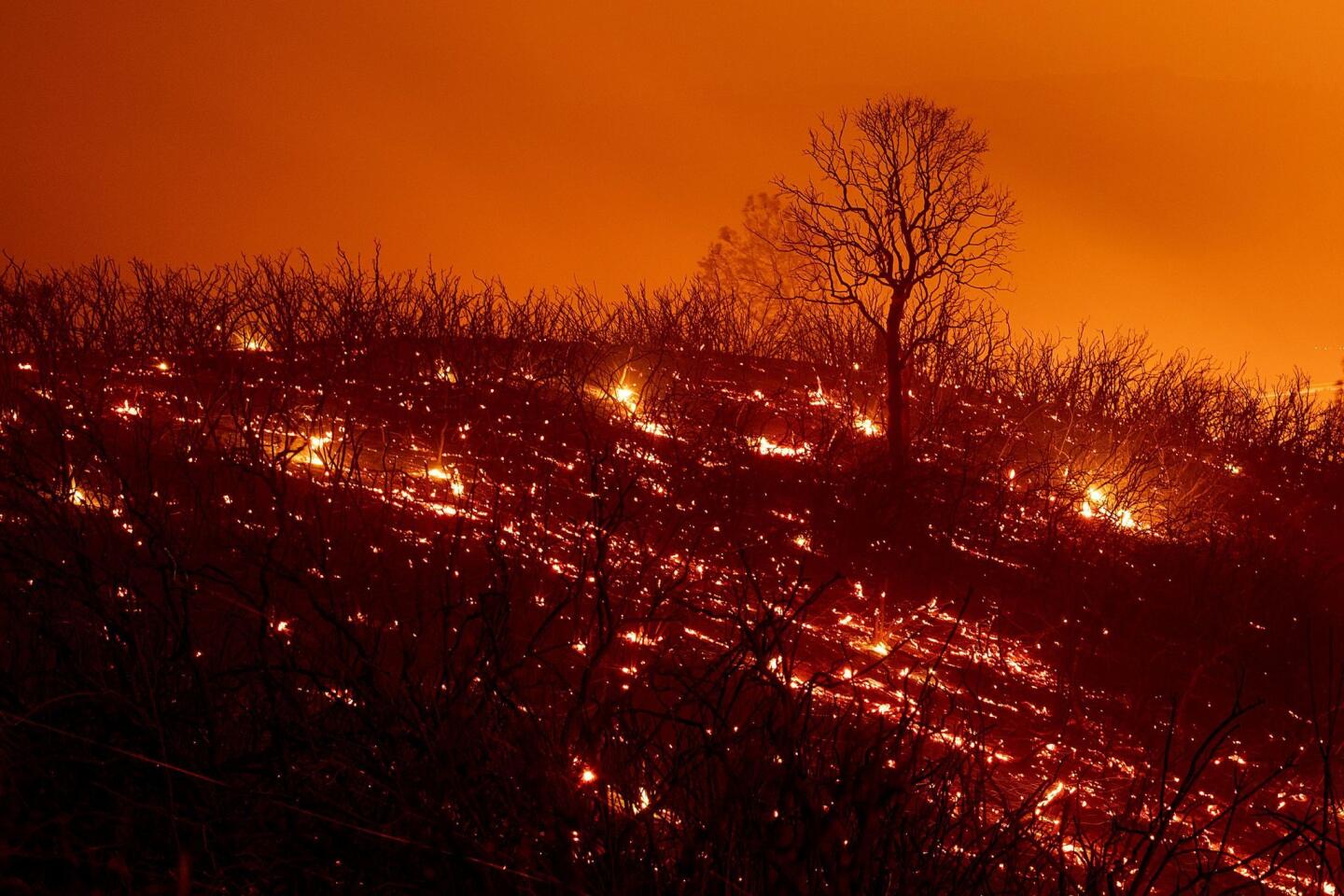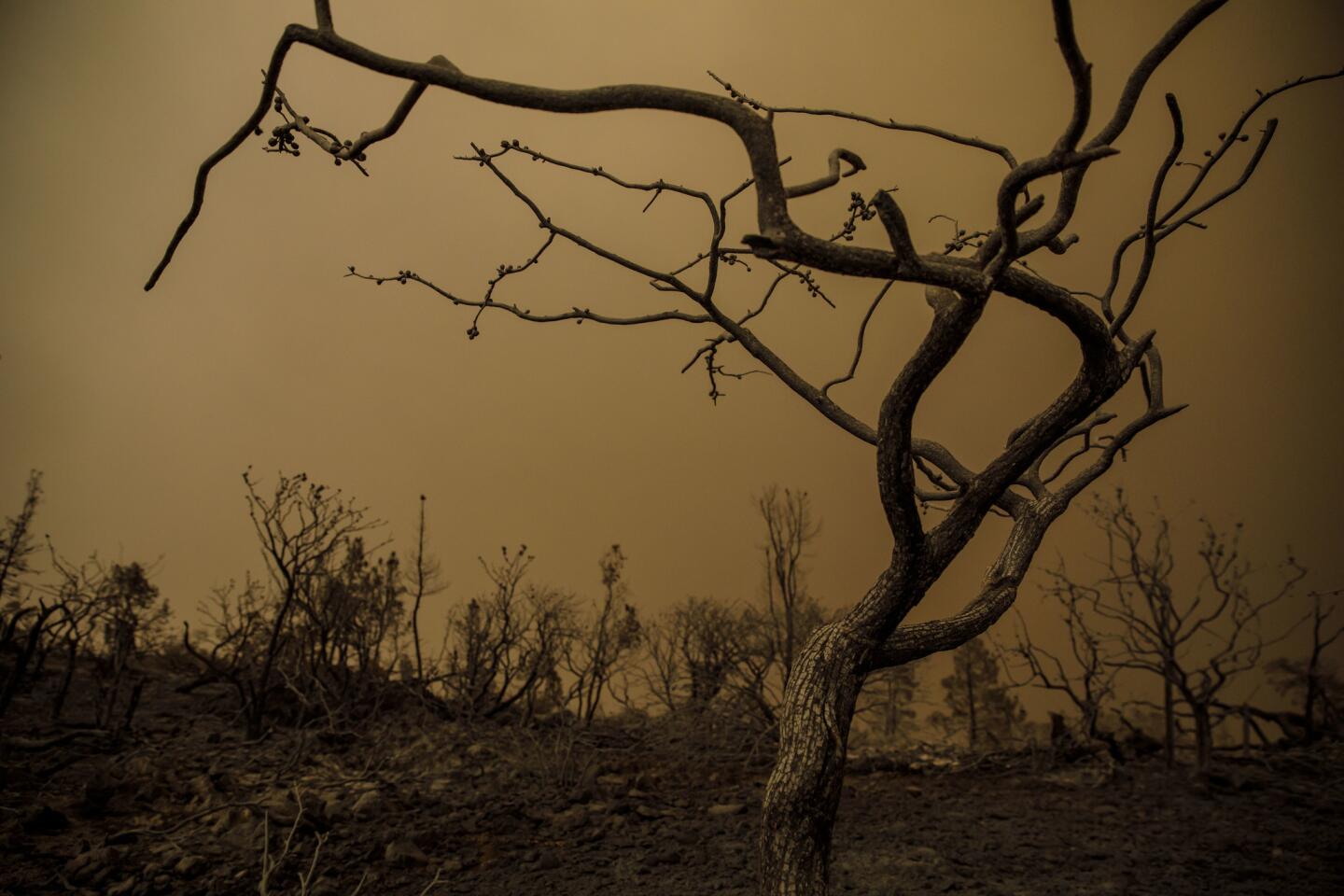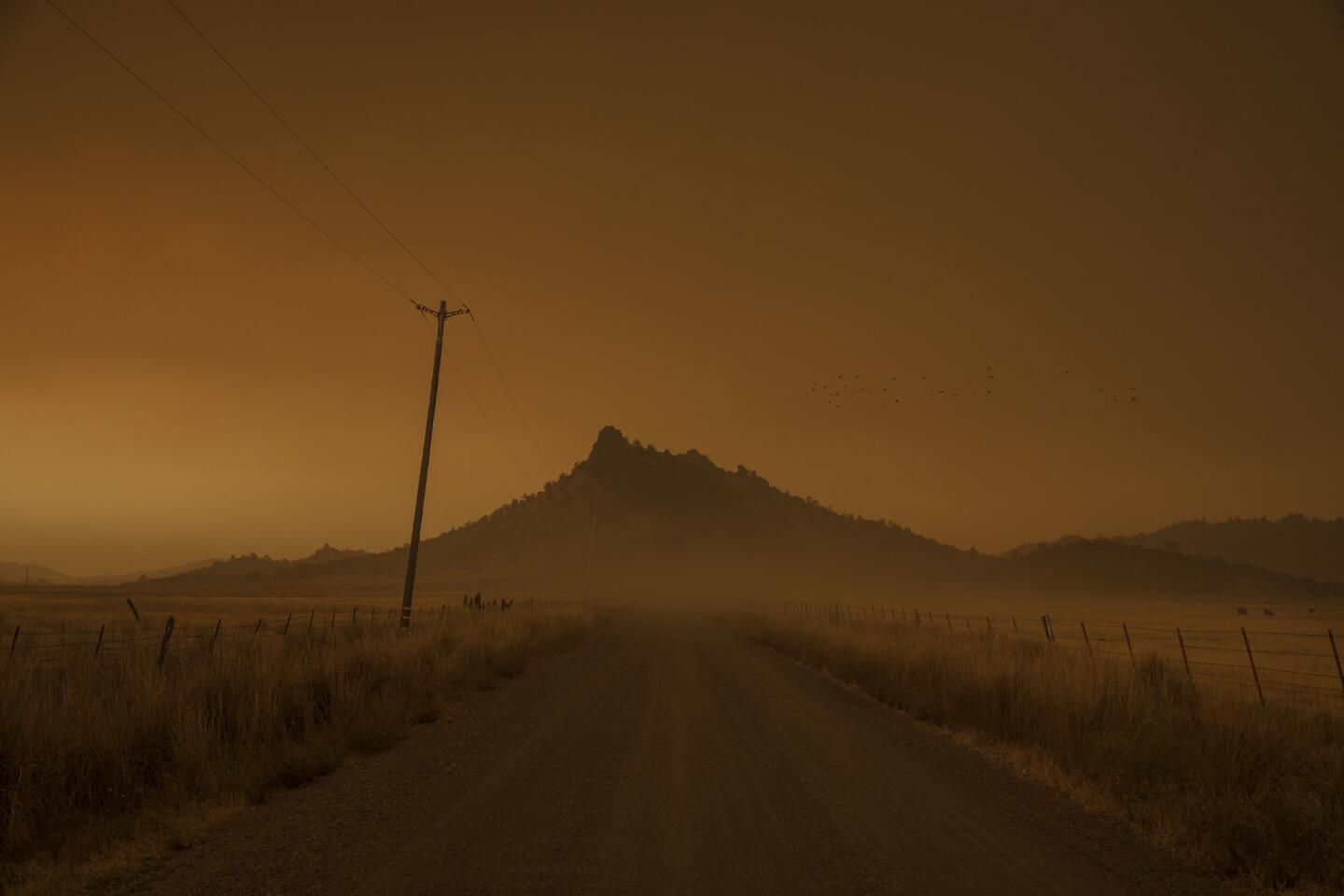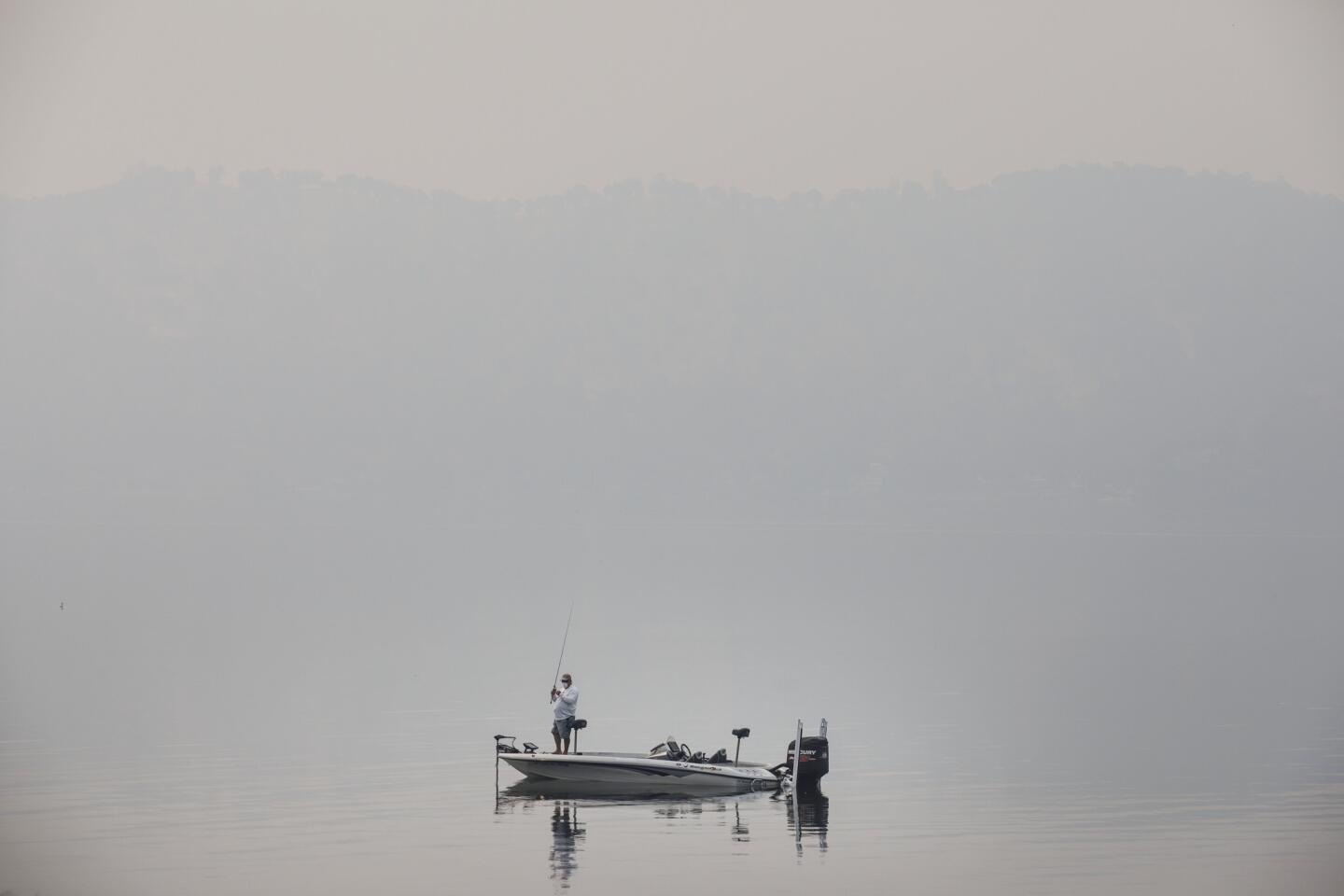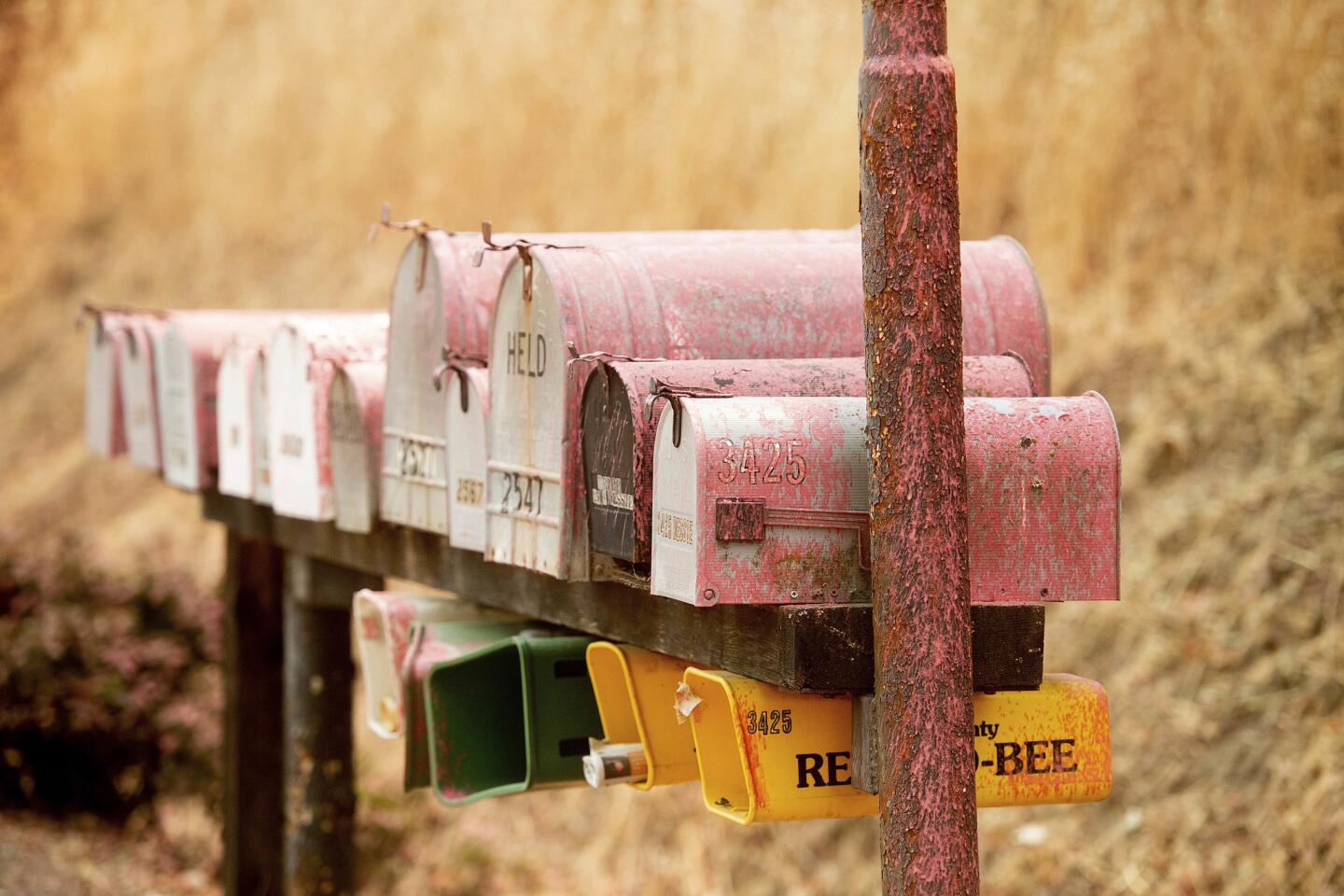California’s largest fire ever keeps growing as winds fan flames

Firefighters are still struggling with the terrain as the fire approaches Snow Mountain Wilderness.
The largest fire in California history continued to grow Thursday while firefighters worked to protect threatened communities.
Crews are on especially high alert this week after a firefighter who traveled from Draper City, Utah, to help battle the blaze died Monday while working on an active stretch.
“We always talk about having our head on a swivel when we’re out on the fire line, because things could change — it could happen right there, in a snap of your fingers,” said Trevor Pappas, a firefighter with the California Department of Forestry and Fire Protection. “You have to have plan A, B, C, D — and sometimes E, F, G.”
Every five or 10 minutes, firefighters on the line are encouraged to “look up, look around and make a sound,” Pappas said.
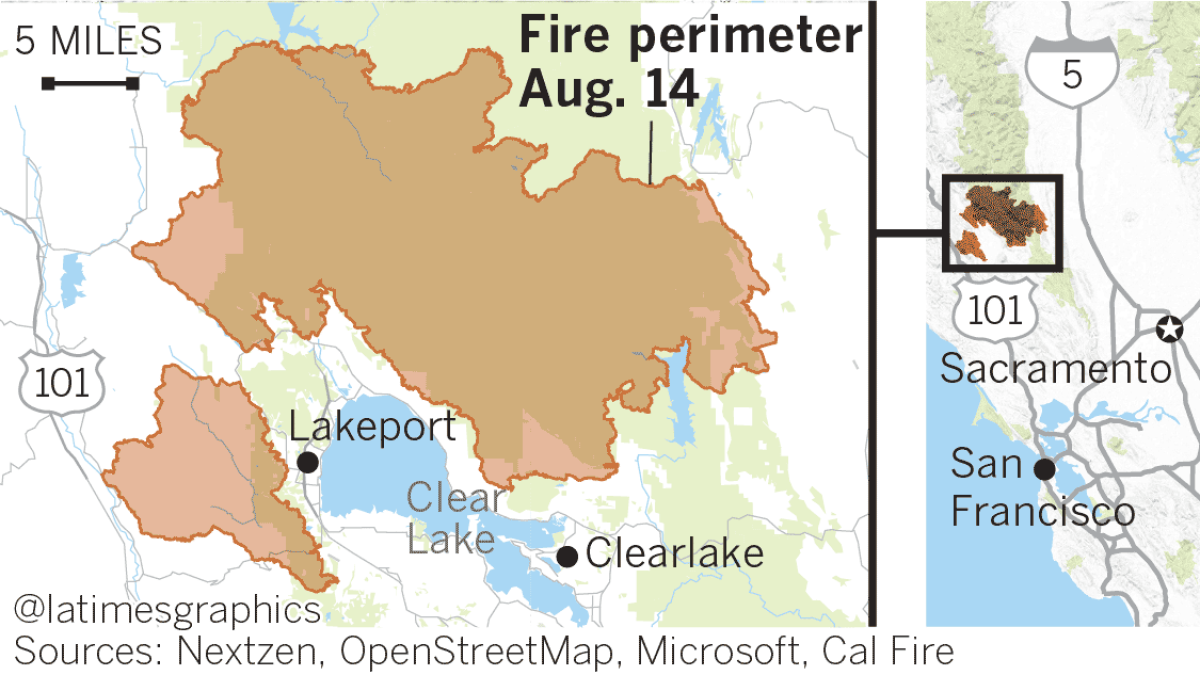
Conditions have been ripe for the erratic fire behavior that has led to the explosive growth of the Ranch fire, which along with the River fire makes up the 364,145-acre Mendocino Complex fire. The days are so hot and dry that whatever gains firefighters see overnight when the humidity goes up quickly fade when the sun hits the fuels and sucks the moisture out. Lately, winds have started to pick up about 5 p.m., gusting to between 15 and 25 mph.
“That will really push a fire — no person on Earth runs 25 mph,” Pappas said. “We all want to go home at the end of the day, or the end of the shift, and make it back to our families.”
Residents around Clear Lake have been allowed to return home, but new evacuation orders were announced in the last few days for communities to the east and west of Mendocino National Forest, including Stonyford, Lodoga and Potter Valley.
That presents another challenge for firefighters. Unlike the Clear Lake area, which is fairly accessible by road, these communities are farther into the forest and surrounded by more rugged terrain, said Cary Wright, a Cal Fire spokesman.
Wright said the persistent low humidity has allowed the fires to continue growing — by 9,400 acres on Tuesday and 1,300 acres Monday. On Wednesday, firefighters were expecting to get a brief break in the hot weather.
California fire coverage: Eleven dead and hundreds of thousands of acres scorched across the state »
Temperatures were expected to drop and humidity levels to increase Wednesday and Thursday, he said. Nighttime humidity rose significantly Tuesday for the first time since the fire started, Wright said.
Firefighters count on the drop in temperature and increase in humidity that usually occurs naturally overnight to allow them to make progress. But that hasn’t been happening in Lake County recently. Nighttime humidity levels have consistently been in the teens to 30% range. Tuesday night, the humidity reached 80%.
Despite the good news, the fight is far from over.
“We’ve had numerous calls from residents, saying, ‘Why is it still smoky?’ or ‘Is there another fire?’” Wright said. Shifting winds blow smoke to different areas at different times, and many people mistakenly think that because they’ve been allowed to return home, the fires aren’t burning anymore, he explained.
“Lake County communities have experienced a lot of fires, so as you can imagine, those folks are still on edge,” he said.
Firefighters are still struggling with the terrain as the fire approaches Snow Mountain Wilderness. They are using natural and manmade barriers ahead of the fire to the north, and are placing most on-the-ground resources to the east and west where homes are threatened, Wright said.
The Mendocino Complex fire has now expanded to four counties — Mendocino, Lake, Glenn and Colusa — Wright said. And as of Aug. 11, the Ranch fire has surpassed last winter’s Thomas fire’s acreage, making it the largest single fire in California history.
Yosemite reopens to a surreal scene of smoke, tourists and flames in the distance »
UPDATES:
8 a.m., Aug 16: This article was updated with the latest figures on burned acreage, quotes from fire officials and information on evacuations.
This article was originally published at 11 a.m. Aug 15.
More to Read
Sign up for Essential California
The most important California stories and recommendations in your inbox every morning.
You may occasionally receive promotional content from the Los Angeles Times.
